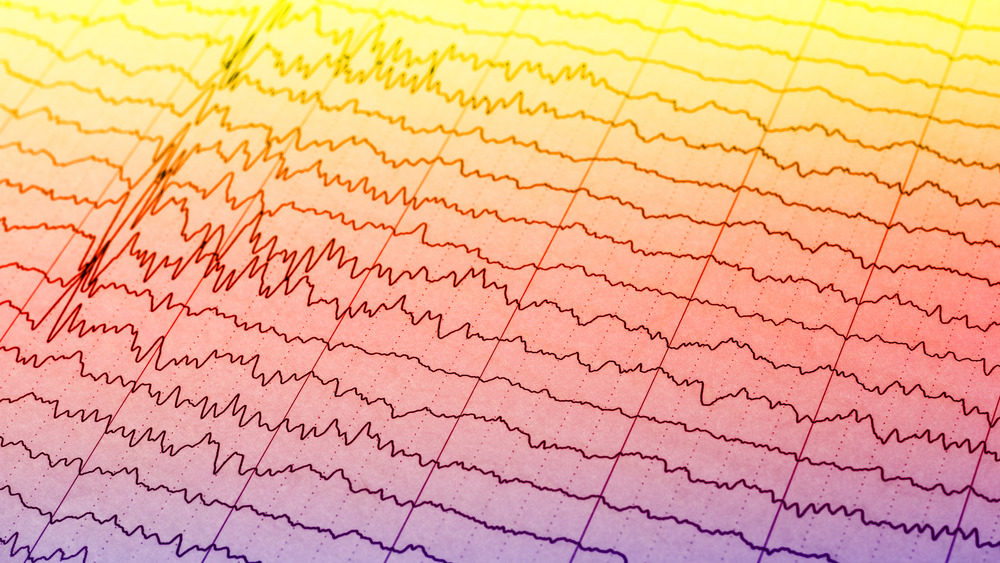Alaskan Bush People Star Billy Brown's Cause Of Death Explained
Billy Brown, the patriarch from Discovery Channel's Alaskan Bush People, died at the age of 68 on February 7, 2021. One of his sons, Bear, shared the sad news with fans (via People). "We are heartbroken to announce that our beloved patriarch Billy Brown passed away last night..." People reports Bear wrote on his private Instagram account. "He was our best friend — a wonderful and loving dad, granddad and husband and he will be dearly missed."
The official Discovery Channel Instagram account for Alaskan Bush People noted, "We are devastated to hear of Billy Brown's sudden passing. He has been part of the @discovery family for years — a trailblazer, a lovely man, and most definitely one of a kind. Our heart is with his family and those that knew him and loved him as they deal with this devastating loss.
His unexpected death took his family by surprise, as well as the legions of fans who loved to tune in to the family's adventures. What happened to Billy Brown?
How did Billy Brown die?
In Bear's Instagram post, he mentioned that his dad Billy had died following a seizure. Seizures are not a new thing to the Browns' lives, unfortunately — Billy had been living with seizures for years, and in 2018, he had a particularly bad experience that was caught by the show's cameras (via Delish). At the time, his son Bam Bam noted, "To put it bluntly, Dad just had a seizure, is what happened. Every now and then, he weirds out, gets all dingy, he has a seizure. It varies from so light that he can kind of hide it from you, to so bad he just goes down and loses consciousness."
The family hasn't revealed what type of seizures Billy was experiencing, but there are times seizures can be fatal, especially if a person has epileptic seizures — in that case, it's known as Sudden Unexpected Death in Epilepsy, or SUDEP (via CDC). The exact cause of this type of death isn't known, but when it happens, a seizure can interrupt a person's breathing or their heart rhythm, which can result in death.
What is a seizure?
There are several different types of seizures, but when someone has at least two seizures without an obvious cause, they often receive an epilepsy diagnosis (via Mayo Clinic). Epilepsy is a disorder that affects the nervous system and results in abnormal brain activity. There is a bevy of symptoms that can accompany epilepsy simply because the abnormal brain activity can alter anything your brain is in charge of.
Symptoms can be as seemingly benign as temporary confusion or a staring spell, or someone can experience what you might think of as a "classic" seizure, including the uncontrollable jerking of extremities. People having a seizure can also lose awareness of their surroundings, or they can pass out. They can also experience mental symptoms, such as anxiety, fear, or deja vu.
There are several different types of seizures, but if someone has an epilepsy diagnosis, they are more apt to have the same (or similar) symptoms each time they have a seizure.
There are several different types of seizures
Not all seizures are the same. There are different classifications that are based on how the abnormal brain activity gets started. Focal seizures, for example, start in one area of the brain, while generalized seizures affect all parts of the brain.
Someone can have a focal seizure either with or without a loss of consciousness. A focal seizure without a loss of consciousness can involve altered senses or emotions, some involuntary jerking of a body part, or unusual sensory impairments, such as seeing flashing lights or experiencing tingling. A focal seizure accompanied by impaired awareness might result in someone staring into space, not responding to the surrounding environment, or repetitive movements, such as hand rubbing or walking in circles.
Generalized seizures can be classified into one of six different types, and can vary in intensity — absence seizures, for example, used to be known as petit mal seizures and can involve staring into space or unusual eye blinking or lip smacking. Tonic seizures can stiffen the muscles and can cause someone to fall down, as can atonic seizures, although that usually happens due to a loss of muscle control. Clonic seizures and myoclonic seizures cause brief or repeated jerking or twitching, and tonic-clonic seizures (formerly known as grand mal seizures) "can cause an abrupt loss of consciousness, body stiffening and shaking, and sometimes loss of bladder control or biting your tongue."
When to see a doctor
If you have a seizure for the first time, it's vital to see a doctor to get a diagnosis and determine if treatment is needed (via Johns Hopkins). After a thorough health history, you'll likely receive a neurological exam, plus other tests which can include blood tests, imaging (MRI or CT), electroencephalogram (EEG), or a lumbar puncture (via Epilepsy Foundation).
If you already have a diagnosis of epilepsy, it's important to keep your regular medical checkup appointments and take medication as prescribed by your doctor. With an epilepsy diagnosis, every seizure is not necessarily a medical emergency, but there are times that a 911 call is warranted (via CDC): after the seizure is over, if a person is having a hard time breathing or regaining consciousness; the seizure goes on for over 5 minutes; the person is injured during the seizure; the seizure takes place in the water; or if you know the person is pregnant or has another health condition, such as diabetes or heart disease.
What is SUDEP?
Sudden Unexpected Death in Epilepsy, also known as SUDEP, is when someone with epilepsy unexpectedly dies and there are no other causes of death to be found (via Epilepsy Foundation). Disney Channel star Cameron Boyce died from SUDEP in 2019, which brought a little more awareness of this type of death. While experts don't know the reason this happens, it's possible that it's related to breathing difficulties after a seizure, and it's even conceivable that there are different causes for each person who dies this way.
Some people are found deceased in bed, while others have an observable seizure before they die. According to the Epilepsy Foundation, over a thousand people with epilepsy die every year from SUDEP, and it's more common in those whose epilepsy is not controlled well. Seizures can also cause an abnormal heart rhythm, or can even cause cardiac arrest.
Whatever the exact cause of Billy Brown's death, he will be sorely missed.






